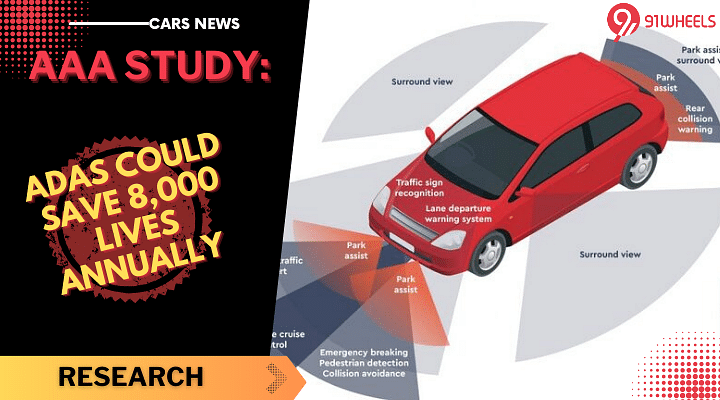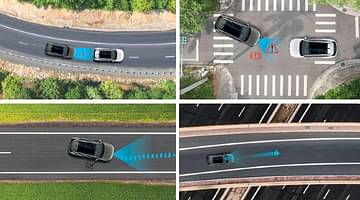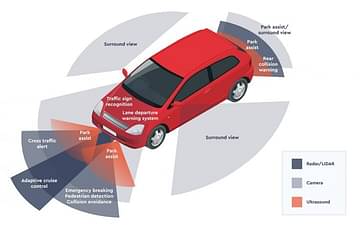
KEY HIGHLIGHTS
- Predicts ADAS tech to prevent 27M crashes, 14M injuries and 250,000 deaths by 2050
- Anticipates 16% fewer crashes and injuries; 22% decline in fatalities
- Testing ADAS cars, issues were found every 8 miles over 4K miles
A recent research conducted by the AAA Foundation for Traffic Safety reveals that embracing and utilizing Advanced Driver Assistance Systems (ADAS) has the potential to prevent over 8,000 fatalities annually. For further insights, read on. Meanwhile, you can join our 91Wheels Whatsapp Group for all of such latest updates from the automotive industry.
Also Read: 2024 Volkswagen Tiguan Spied Without Camouflage: Details leaked In Pictures
AAA Study: ADAS Could Prevent 27 Million Crashes

The American Automotive Association's (AAA) Foundation for Traffic Safety, a charitable research branch, has joined hands with University of North Carolina researchers. They've developed models assessing ADAS technology's potential to reduce crashes, injuries, and deaths over the next 30 years. Using 2017-2019 crash data as a baseline, predictions indicate ADAS could prevent 27 million crashes, 14 million injuries, and 250,000 deaths by 2050.
The AAA study focused on dynamic ADAS like adaptive cruise control and automatic emergency braking, Level 2 systems capable of steering, braking, and accelerating. Contrasting them, non-dynamic Level 0 tech includes adaptive lights and reversing sensors.
Also Read: BYD Files Trademark For Sea Lion Electric SUV In India - All Details Here!

Yet, the effectiveness of lab models versus real-world ADAS remains uncertain. A 2020 AAA study found "active driving assistance systems do less to assist drivers and more to interfere." Testing ADAS-equipped cars for over 4,000 miles revealed issues every 8 miles, leading to collisions 66% of the time, averaging 25 mph impact speed, especially challenging when encountering disabled vehicles.

The Insurance Institute for Highway Safety's president, David Harkey, criticized ADAS, stating, "Partial automation systems may make long drives seem like less of a burden, but there is no evidence that they make driving safer. In fact, the opposite may be the case if systems lack adequate safeguards."
The recent AAA study highlighted consumers needing assistance before driving. Many don't comprehend features like adaptive cruise control, leading to "misuse or mistrust" when unexpected actions occur. Dr David Yang, AAA Foundation's president, stressed, "[The] full safety benefits of ADAS will not be realized unless they are fully understood by the consumer, used properly, and widely adopted"
Verdict
As more cars adopt advanced driver assistance systems (ADAS), research suggests they could prevent millions of crashes and save thousands of lives by 2050. However, real-world challenges and consumer understanding need to be addressed for these benefits to be fully realized. While ADAS shows promise, achieving safer roads involves more than just technology.
Also Read: Tata Curvv EV And ICE Versions Are Soon To Hit The Stage: Back-to-Back Unveiling







































